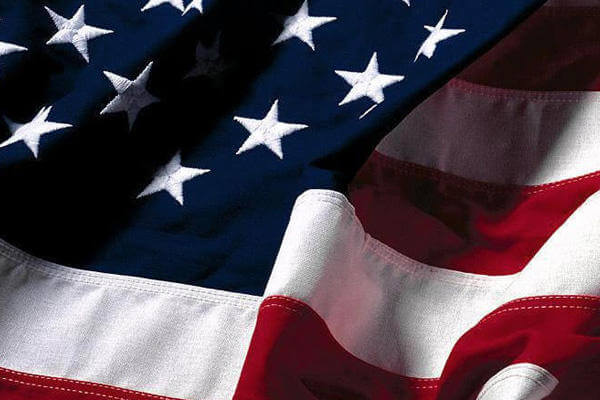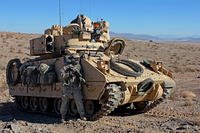This is Part 1 of a guide to help military members, veterans and their families in getting their affairs in order. "Getting your affairs in order" has become the euphemism of choice for "properly taking care of things before you die." As a member of the military, this subject deserves special attention given the reality of the risks you take as well as the unique services and processes afforded to you and your family for your service.
Part 1 is meant to guide you through considerations and steps to take before something should happen. Part 2 will guide surviving loved ones on the steps to take.
DD214 Form
Your DD214* is the single most important paper of your military career. On it is all the information about your enlistment, service, and discharge; a summary of your accomplishments as a member of the armed forces. It's key in a couple of different areas as well, particularly to your family after you're gone.
The DD214 is the document used to establish your right to burial honors, and your family's right to survivor's benefits. While there are other ways that are possible (particularly for funeral honors,) none is so fast and efficient as your DD214. The problem is, getting an additional copy of the DD214 is anything but fast and efficient. In certain cases, the VA can take up to 2 months to get a replacement to you (and at least 10 days) - too late for funeral honors, and causing extra stress on your family in an already painful time.
The best course of action to take is to get a copy of your DD214 (if you don't already have one) is to obtain one now, when there's no pressing need for it, and put it in a safe spot that you can make sure your family knows about. There are many services today that allow users to easily store important documents like your DD214, along with other legal and financial information, that ensure delivery to your loved ones when you're gone.
The DD214's importance isn't only practical: it's also a great way for your descendants to remember and take pride in your service long after you're gone.
*NOTE: Before January 1, 1950, several similar forms were used by the military services, including the WD AGO 53, WD AGO 55, WD AGO 53-55, NAVPERS 553, NAVMC 78PD and the NAVCG 553.
Funeral Matters
Another way to help remove stress from your family is to begin considering what you want your funeral to look like: do you want funeral honors? Do you want a government issued headstone or a medallion to commemorate your service? Do you want to be buried in a national cemetery? Each one of these questions is a decision that's relatively easy to make now, and one additional thing your loved ones won't have to worry about later.
Funeral Honors
Military funeral honors are available to deceased active duty and selected reserve servicemembers (Guard and Reserve), and veterans who were discharged under other than dishonorable conditions. Veterans must have completed at least one enlistment.
Military funeral honors include the presentation of the burial flag, a presidential memorial certificate, Taps (played on the bugle or from a recording), and an honor guard with a minimum of two uniformed servicemembers. At least one of which will be from the deceased's branch of service.
Depending on availability, the status of the deceased, and specific circumstances, funeral honors may include one or more of the following:
- A Rifle Guard
- A Color Guard
- Pallbearers
- A Caisson
- A Military Flyover
Headstones & Markers
Government-issued headstones and markers are available, free of charge from the VA, and can be used in either national or local, private cemeteries. They list your name, rank, branch of service, years lived, a short message, and a symbol of faith. Several different options are available, depending on your preferences.
Medallions are intended to be placed on privately purchased headstones, and are usually bronze, and depict a folded burial flag, your branch of service, and the word "veteran."
National Cemeteries
The chart below shows some key distinctions between national and local cemeteries. If you opt for a local cemetery, be sure to ask about possible benefits for veterans and their families. Some offer free or reduced plots for veterans (sometimes with the purchase of plots for family members), and will install VA headstones for free. You can also ask your local VFW about their policies regarding grave care - and volunteer to maintain graves in your area.
Remember also, that it is impossible to reserve space in a national cemetery before death, but once a veteran passes, certain next-of-kin may request space nearby.
|
Cemetery Benefits Comparison |
||
|
|
National Cemeteries |
Local Cemeteries |
|
Honor Guard Available |
X |
X |
|
Free Plot |
X |
Varies* |
|
Free Grave Opening and Closing |
X |
|
|
Perpetual Maintenance and Care |
X |
|
|
Government Provided Headstone or Marker |
|
|
|
Free Headstone or Marker Installation |
X |
|
|
Space Available for Family |
Limited |
X |
*Contact your cemetery to detrermine if a no-cost plot is avaialbe for veterens.
** Gravesite care is often provided by local veterans service organizations like theVFW.
Visit www.military.com/benefits to learn more about your memorial life insurance benefits.
Visit the AfterSteps website to view a visual, step-by-step walkthrough of this information.
About AfterSteps
AfterSteps is an online service that helps users and families get their affairs in order. The service allows members to access estate planning forms, securely store important documents, catalog financial and digital account information, and document final wishes. AfterSteps securely stores members' plans and delivers them to designated loved ones when the time comes. AfterSteps has been featured in The New York Times, The Wall Street Journal, and Forbes. For more information on AfterSteps, go to www.aftersteps.com.



















